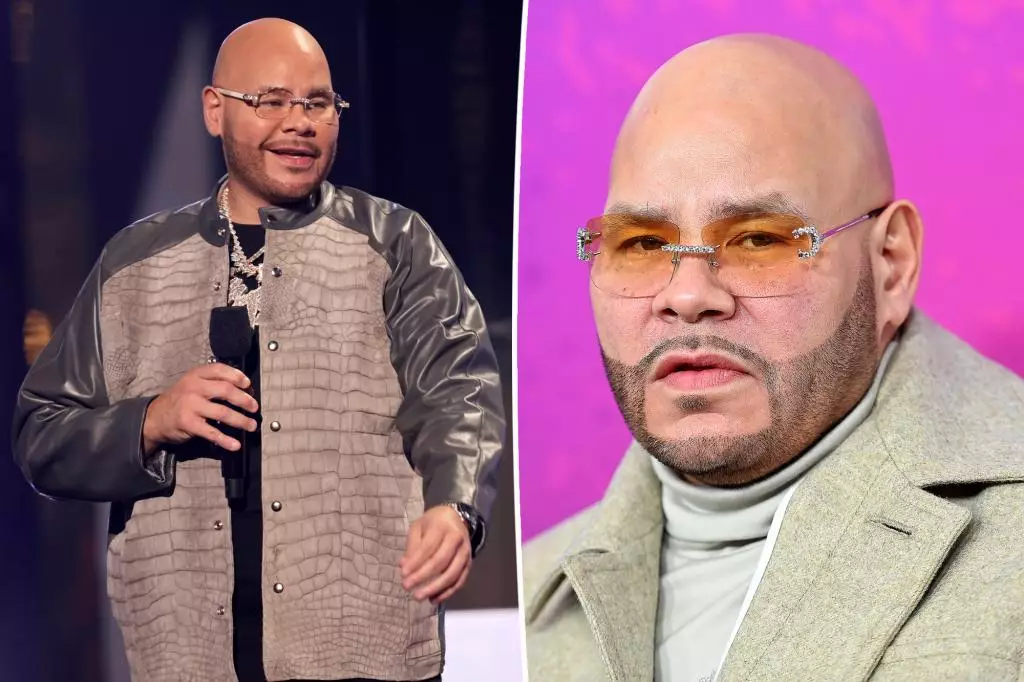In the high-stakes world of celebrity culture, scandals can erupt at any moment, thrusting stars into the spotlight for all the wrong reasons. The recent lawsuit against hip-hop heavyweight Fat Joe has sent shockwaves through the industry, bringing to light troubling allegations of sexual misconduct that, if proven true, could irreversibly stain the legacy of the artist known for chart-toppers like “Lean Back” and “All the Way Up.” The allegations are not just serious; they’re incendiary, as they involve minors and other accusations that paint a portrait of exploitation and manipulation.
The Accusation: A $20 Million Bombshell
The legal storm beginning with a $20 million lawsuit filed by Fat Joe’s former hypeman, Terrance “T.A.” Dixon, has taken the industry by surprise. Dixon alleges not only that he witnessed Fat Joe engage in sexual acts with minors but also includes disturbing specifics that challenge the artist’s public persona. According to court documents, the accusations entail relationships with girls as young as 15 and 16 years old—relationships that allegedly involved highly inappropriate exchanges for financial compensation, clothing, and even mobile phone bills.
If we analyze these allegations, they embody an alarming pattern of predatory behavior that is terrifying in any context, especially when it involves minors. The claim that Fat Joe, now 54 and a public figure for decades, cultivated relationships with teenage girls post-concert shows a serious moral failure. Such accusations against a figure celebrated for his musical contributions force fans and the public to confront ugly realities about fame and its potential to shield individuals from accountability.
Ditching the Glamor: Coercion and Exploitation
Dixon’s lawsuit doesn’t stop at sexual misconduct; it escalates to claims of “coercive labor exploitation, financial fraud, sexual manipulation, violent intimidation, and psychological coercion.” These allegations not only tarnish Fat Joe’s credibility but also evoke a more disconcerting dialogue about the treatment of artists in the music industry. Dixon claims that during his time working with Fat Joe from 2006 to 2019, he was severely underpaid, denied royalties, and subjected to exploitation. This raises a crucial question: how many other artists in the industry endure similar treatment in silence?
The music business is infamous for its power imbalances, and Dixon’s experience—characterizing himself as underpaid and manipulated—further illustrates the systemic issues present. While Fat Joe’s platform and success come with considerable perks, he allegedly wielded this power to his advantage against those less fortunate. Such stories destabilize the narrative that celebrity equates to integrity or moral superiority. Instead, they illustrate that power can corrupt, and that the facade of success can often mask exploitation.
Legal Back-and-Forth: The Defense’s Response
Fat Joe’s legal team, led by attorney Joe Tacopina, has denounced the allegations as nothing more than a “money grab” designed to tarnish the rapper’s reputation. Tacopina suggests that Dixon’s motives may be self-serving, pointing to the existence of documented inconsistencies in Dixon’s claims. For instance, Tacopina asserts that women named in the lawsuit have denied any wrongdoing on Fat Joe’s part, claiming ignorance of their supposed victimization. Such denials raise skepticism about the credibility of the allegations and paint Dixon’s narrative as potentially dubious.
This defensive strategy underscores the complexity of legal disputes in the public eye, where public opinion can quickly shift based on allegations. The case remains to be seen in a court of law, but the exchange of legal claims only serves to intensify the public intrigue surrounding the matter. It’s worth noting that legal accusations often hinge not just on facts but also on the interpretation of those facts—a labyrinthine process that can obfuscate the truth.
Celebrity Culture: The Price of Fame
As this scandal unfolds, it becomes critical to reflect on what it means to be a celebrity in today’s world. The scrutiny faced by public figures is intense, and when allegations of such gravity arise, they not only threaten individual careers but also reflect broader societal issues. It challenges fans to reconcile their admiration for talented individuals with their moral responsibilities toward the truths that fans may prefer to ignore.
Consequently, this raises essential discussions about accountability in the industry, where the lines between admiration and complicity can blur. Fans must grapple with whether supporting their favorite artists implicitly condones bad behavior. As allegations come to light, they illuminate uncomfortable truths about the dynamics of power, exploitation, and the often-permissive culture surrounding celebrated figures.
In a landscape where allegations like these have the potential to alter lives and careers forever, the unfolding drama of Fat Joe’s legal battles serves as a crucial moment for introspection within both the music community and society at large. The true repercussions of these allegations will only be fully understood as the legal proceedings evolve, but the discussion they ignite is far-reaching and vital, shining a light on issues that transcend the music industry itself.

